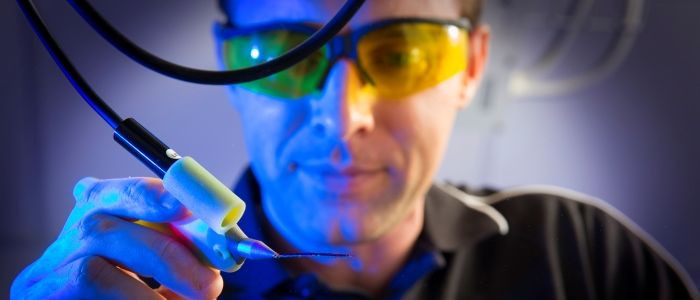Aussie scientists develop 3D printer which uses ink made from hydrogel & stem cells

Scientists from the St Vincent’s Hospital in Melbourne have developed a 3D printer that uses ink made from stem cells and hydrogel. Called Biopen, the device allows surgeons to precisely customise the joint to the surgical scaffolds and permanently harden the biogel with the use of ultraviolet light.
The team use medical-grade plastic and titanium to build the Biopen after interactions between clinicians and surgeons. The clinicians identified the problem and the scientists developed the solution, says Professor Peter Choong, director of Orthopaedics at the hospital. Also part of the product development were researchers at the ARC Centre of Excellence for Electromaterials Science.
Engadget reports that with Biopen, patients who would undergo knee replacement surgery would enable the doctors to create a custom-made joint from the patient’s stem cells. Since in some applications, such as cartilage repair, the exact geometry of the implant cannot be known precisely before the surgery, making a pre-prepared artificial cartilage implant is extremely difficult.
Using the device had a 97 percent survival rate for the cells. Biopen could also be used in other forms of surgery where custom tissue regeneration is needed. It is an improvement from a prototype developed a few years ago but was refined.
Biofabrication journal published the work. The Materials Node of the Australian National Fabrication Facility supported the fabrication and design expertise of the Biopen.




















